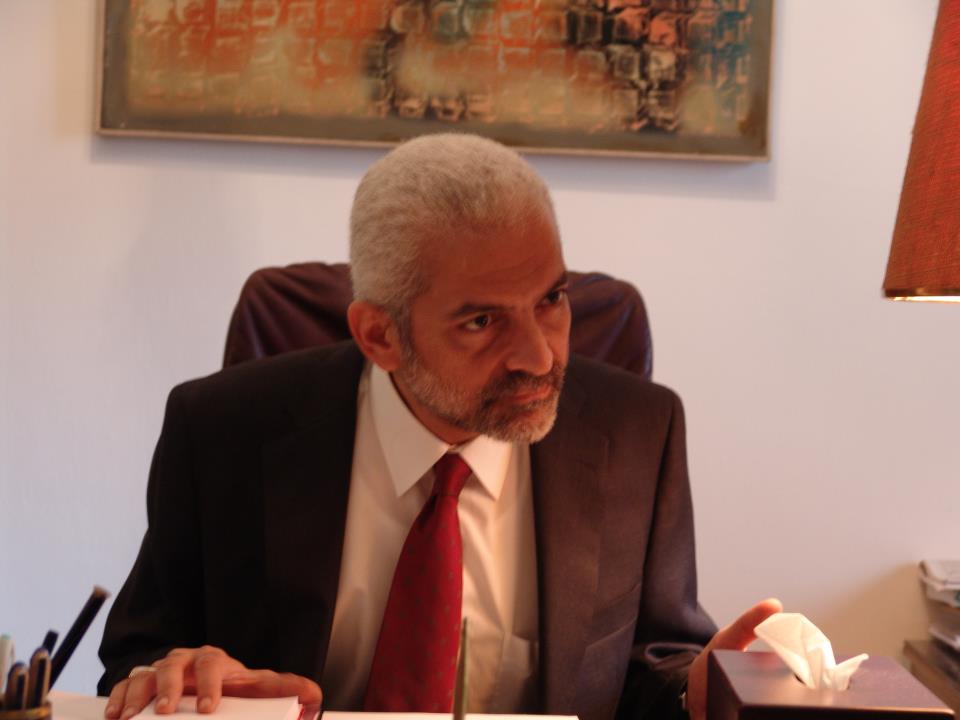
AFP – Moscow and Washington begin crucial talks Thursday on Russia’s plan for Syria to hand over its chemical weapons, after President Vladimir Putin made a personal plea to the American people to reject military action.
In talks reminiscent of Cold War-era summits, US Secretary of State John Kerry and Russian Foreign Minister Sergei Lavrov will meet in Geneva to pore over Moscow’s plans to neutralise Syria’s chemical arsenal.
Russia’s shock announcement this week of a plan for Syria to surrender its chemical weapons up-ended US plans for military action in response to an alleged chemical attack last month by President Bashar al-Assad’s regime.
President Barack Obama backed away from a threat to launch airstrikes against the regime, but the United States and main backer France have warned that military action is not off the table.
Revealing details of the proposal for the first time Thursday, Russian daily Kommersant said Moscow had given Washington a four-step plan for the weapons handover.
Quoting a Russian diplomatic source, Kommersant said the plan would see Damascus join the Organisation for the Prohibition of Chemical Weapons (OPCW), declare the locations of its chemical arms, allow OPCW inspectors access and finally arrange for destruction of the arsenal.
Syria’s opposition has denounced the plan as a delaying tactic, warning it will only lead to more deaths in a conflict that has already killed more than 110,000 people since March 2011.
Idriss told world powers they should not “be satisfied only by removing the chemical weapon, which is the tool of a crime, but judge the author of the crime before the International Criminal Court.”
Ahead of the talks in Geneva, Putin took the unusual step of penning a commentary in the New York Times warning that unilateral US military action could unleash chaos.
Appealing directly to US voters and policy-makers over Obama’s head, Putin wrote: “A strike would increase violence and unleash a new wave of terrorism.
“It could throw the entire system of international law and order out of balance,” Putin said.
Drawing on a passage in Obama’s Tuesday night address that said the United States has an “exceptional” role to play, Putin said it was wrong for any power to presume a unique leadership role.
“It is extremely dangerous to encourage people to see themselves as exceptional, whatever the motivation,” he wrote.
“We are all different, but when we ask for the Lord’s blessings, we must not forget that God created us equal.”
Putin welcomed Washington’s willingness to engage with the Moscow initiative, but warned that carrying out strikes without the approval of the United Nations Security Council, where Moscow wields a veto, would destroy the credibility of the world body.
“No one wants the United Nations to suffer the fate of the League of Nations, which collapsed because it lacked real leverage,” he said, referring to the United Nations’ failed inter-war predecessor.
Russia is a traditional ally of Assad, and Moscow, backed by China, has blocked any attempt to sanction his regime through the United Nations.
Envoys from the five veto-wielding permanent members of the Security Council — Britain, China, France, Russia and the United States — held inconclusive talks on Syria at the United Nations on Wednesday.
The talks in Geneva were expected to last two to three days and also focus on revitalising efforts to call a peace conference aimed at ending Syria’s civil war.
As well as Lavrov, Kerry was due to meet UN-Arab League envoy Lakhdar Brahimi to discuss UN-backed efforts to bring the Assad regime to the table with the opposition rebels.
Washington alleges that some 1,400 people died in the chemical attack on August 21 and was rallying support for a military response when the Russian proposal emerged.
Obama had been struggling to win domestic support for unilateral action and in an address to the American people on Tuesday postponed, but did not withdraw, the threat of military action.
French Foreign Minister Laurent Fabius said Thursday that a much-awaited report by UN inspectors into the attack will “probably” be published on Monday.
“It will say that there was a chemical massacre,” Fabius told French radio Thursday.
In his commentary, Putin again accused Syrian rebels of being behind the attack.
“No one doubts that poison gas was used in Syria,” Putin wrote.
“But there is every reason to believe it was not used by the Syrian Army but by opposition forces to provoke intervention by their powerful foreign patrons,” he said.


